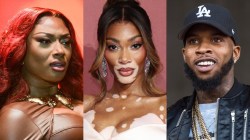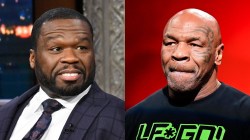Freshmen year of college is an eye-opening moment for anyone leaving the nest for the first time. It’s surely confusing as one attempts to find their place in unfamiliar territory, especially someone out of state. Making my way below the Mason-Dixon line to Baton Rouge, Louisiana, my first semester at Southern University And A&M University was a moment of discovery. Alongside discovering a knack for writing, my So-Cal self learned two hard lessons on race that have shaped me till this day. First was the catastrophe of Hurricane Katrina as I touched down several days before the storm actually hit. That’s a completely different conversation for later. The second involved the first time I physically saw the Klu Klux Klan during a Saturday spent in Tiger Land at a Louisiana State University football game. Around that time, there was this huge controversy regarding the confederate flag being sold in LSU’s color of purple and gold. Southern’s chapter of the NAACP actually joined the Tiger’s Black Student Union to protest that day. It would also be the first time I saw a white man use the word nigger up so close. At that time, I was more fascinated than hurt or angered. For the first time in my life, I realized racism truly existed outside of history lessons and media in a very visceral way. This is coming from someone who’s mother was old enough to drink from separate water fountains, enter movie theaters from different entrances and not be able to eat from the same lunch counter as whites. Instead of fighting the system, she had the better idea of just moving to California which obviously lead to its own set of racial issues. Then again, it beats seeing a cross being burned in front of your yard.
Today marks the day South Carolina’s capital lowered its confederate flag following a racially motivated shooting in Charleston that left nine people dead. In the story I just told above, there was one thing I witnessed weeks after that intrigued me. During a telecast of the Vibe Awards, I remember seeing Ludacris have this ridiculous outfit on with several Confederate Flags printed on it as he performed “Georga” from his Disturbing Tha Peace compilation. I thought to myself: Is this dude serious? During the performance, he rips it off to reveal this Pan-African get-up of red, black and green. Fast forward to current events and a wiser self, Luda wasn’t the only one to giving commentary on the flag and Hip Hop’s relationship with the Confederate Flag is as complicated as the racial issues it raises. A few years back, Kanye raised some eyebrows when he began selling jackets and shirts with racially charged banner during his Yeezus tour leading Q-Tip to denounce it. Here’s what Ye had to say about the controversy:
“The Confederate flag represented slavery in a way,” West said. “That’s my abstract take on what I know about it, right? So I wrote the song, ‘New Slaves.’ So I took the Confederate flag and made it my flag. It’s my flag now. Now what you gonna do?”
Did Yeezy just reappropriate the Confederate Flag by claiming it as his own like nigger/nigga? When it comes the to mind of Chi Town’s finest, who knows? He isn’t the only one to represent the flag either. Last year, Yelawolf posted and later deleted photos of him wearing the Dixie flag himself. In Catfish Billy’s case, it was equally weird considering his nuanced take on white rappers using the n-word during an interview with Vlad-TV. Then there was that specific covers for MJG’s No More Glory and Lil Jon & The Eastside Boyz’s Put Yo Hood Up featuring the flag being burned in some form. Even Andre 3000 wore the mark of the confederacy on a belt buckle for the “Ms. Jackson” video.

AD LOADING...
Hip Hop is known for ruffling feathers on both sides of any potential argument. The culture itself has always been seen as an artistic byproduct of racism. In terms of the Confederate Flag, there are some artists within the culture who detest the symbol of dehumanization and oppression, re-appropriate it for their own empowerment or fit somewhere in between. As the conversation continues past this morning’s events, it’ll be interesting to watch who and why any rapper would associate themselves with something viewed as a symbol of America’s dark past.
Ural Garrett is a Los Angeles-based journalist and HipHopDX’s Senior Features Writer. When not covering music, video games, films and the community at large, he’s in the kitchen baking like Anita. Follow him on Twitter @Uralg.



